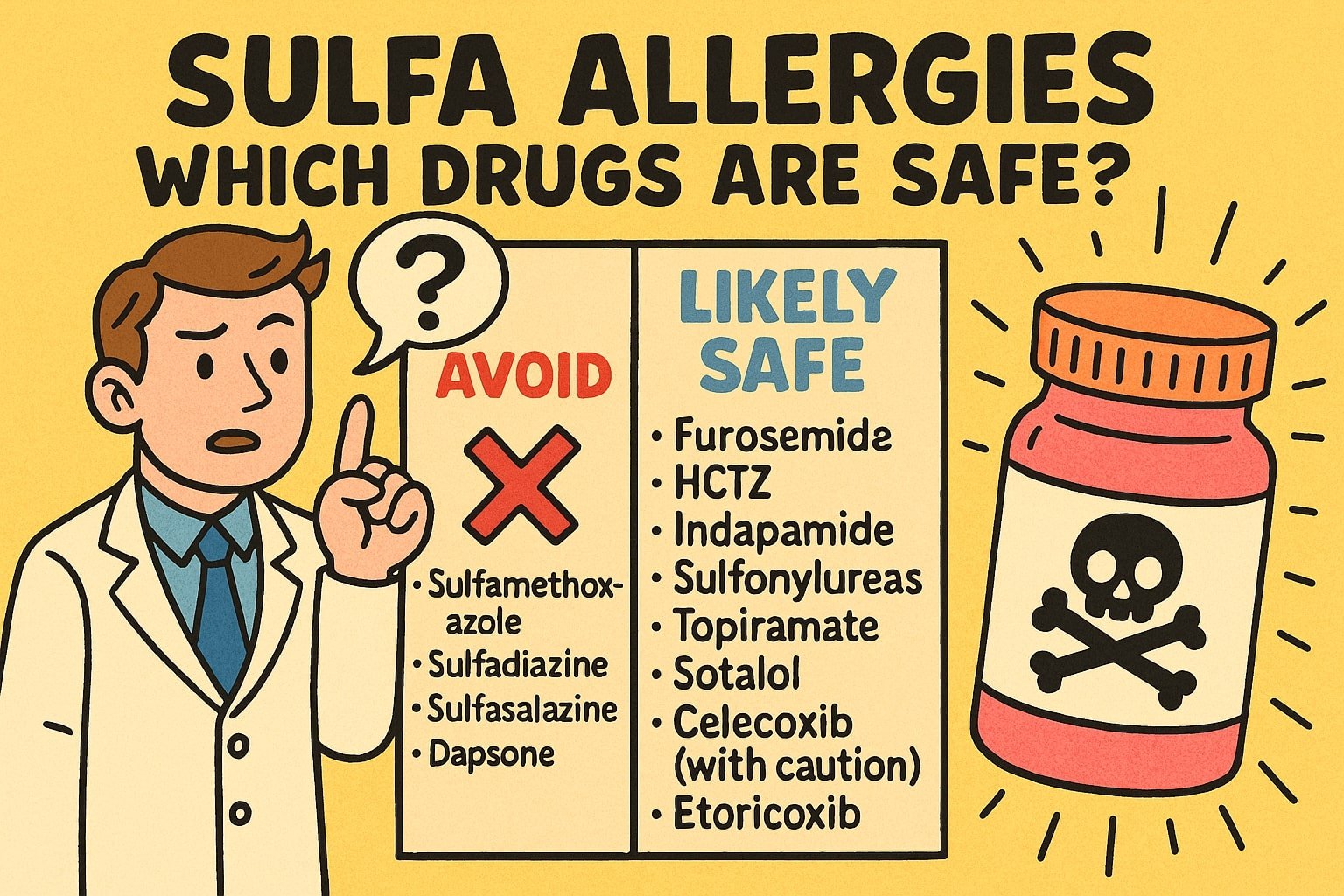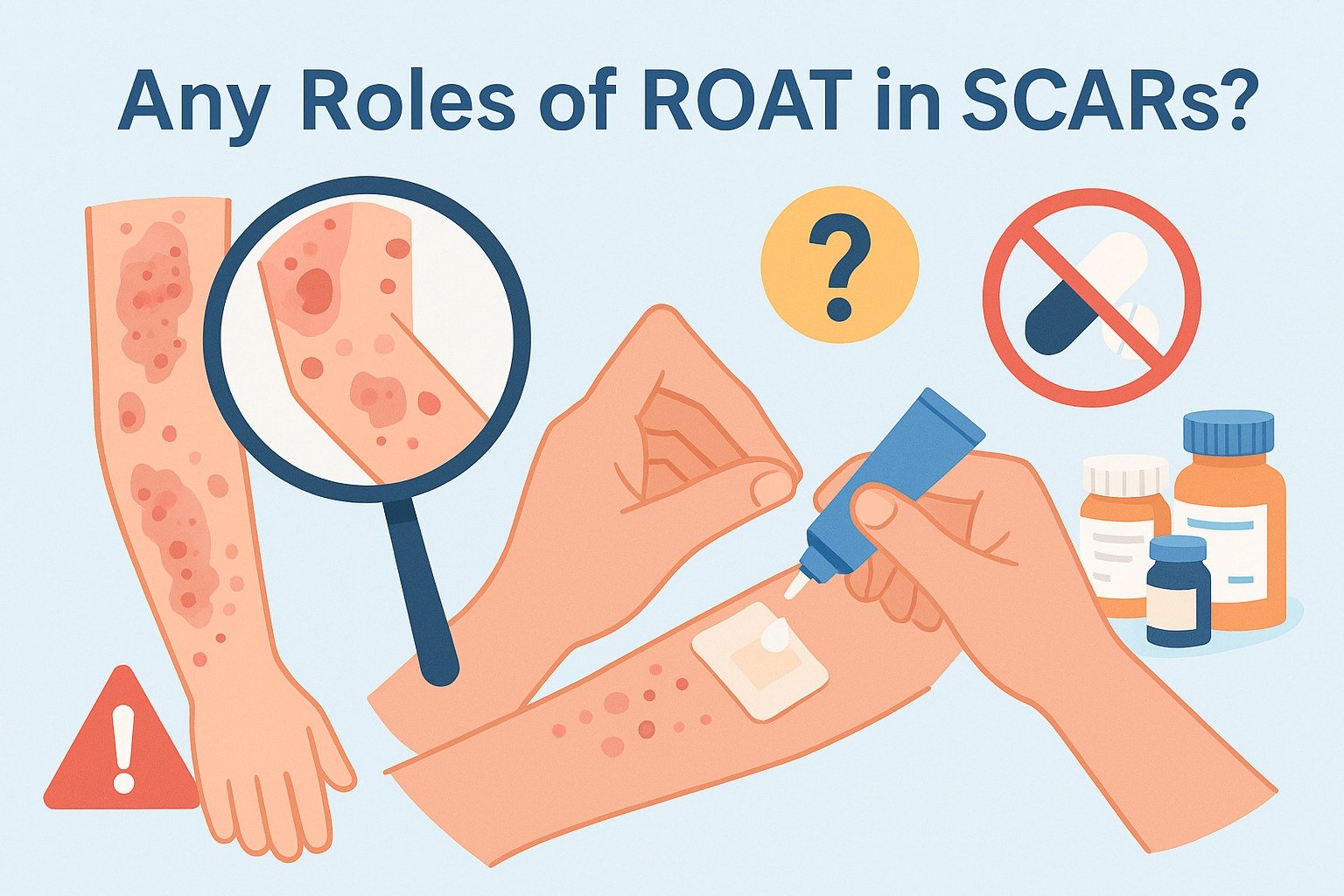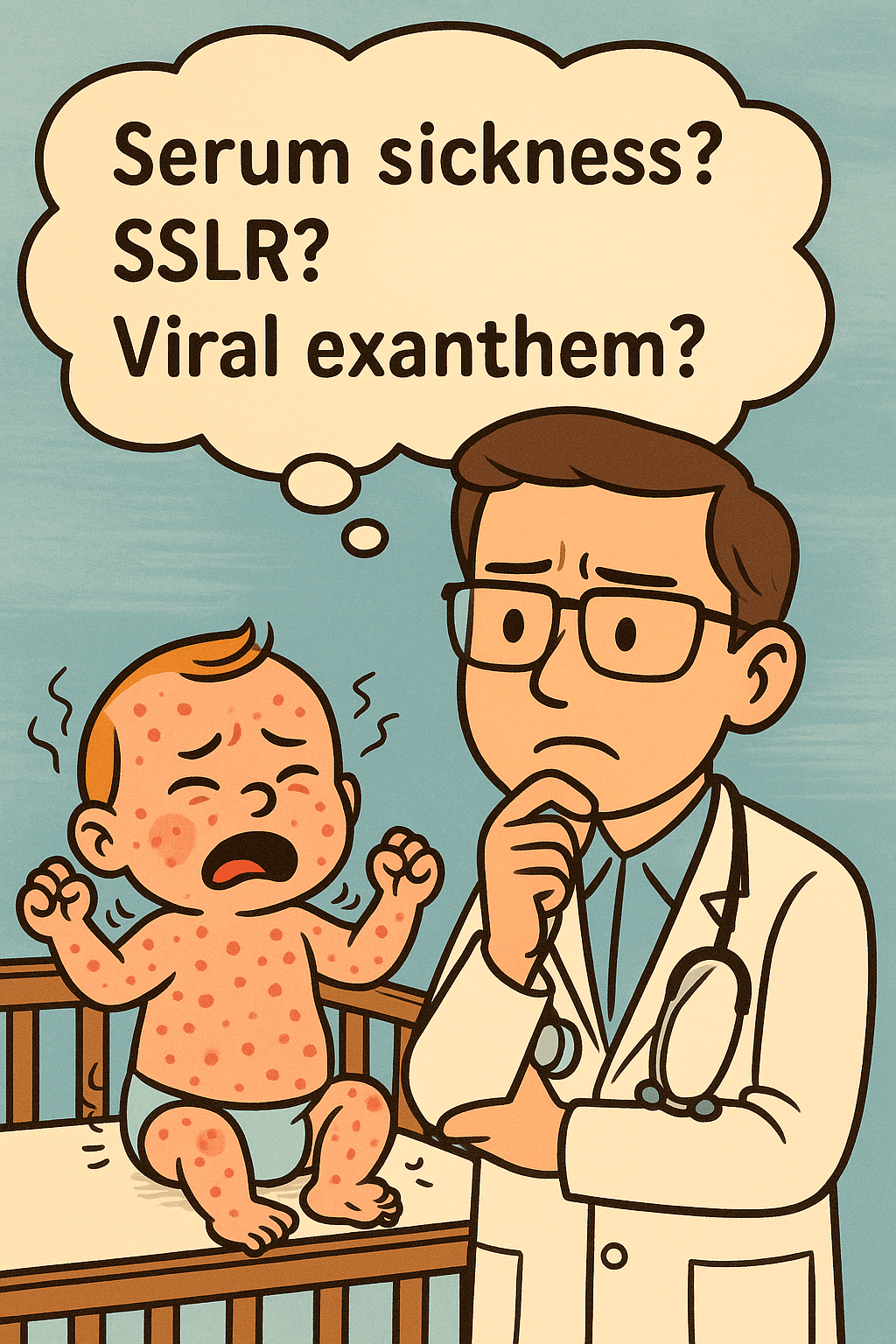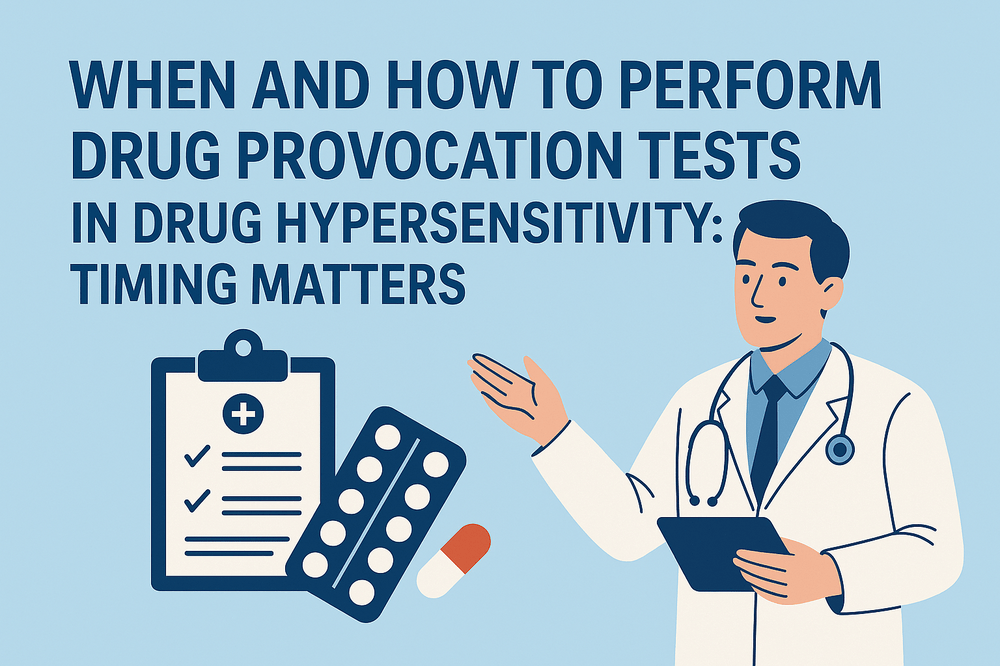AGEP vs GPP: When Skin Reactions Look Similar but Behave Very Differently Skin rashes can be alarming, especially when they appear suddenly and spread quickly. Two conditions that often cause confusion are acute generalized exanthematous pustulosis (AGEP) and generalized pustular psoriasis (GPP). AGEP vs GPP is a comparison that often raises confusion among both patients and clinicians. These two skin conditions can appear strikingly similar at first glance, yet their causes, clinical behavior, and long-term management are very different. Understanding these differences is important — not only for accurate diagnosis,…
Read MoreCategory: Tips and Tricks for Drug Allergy Management
Tips and Tricks for Drug Allergy Management
Sulfa Allergy: Safe Drugs, Drugs to Avoid, and How to Think About Cross-Reactivity
Many patients search online for sulfa allergy safe drugs after experiencing severe reactions to antibiotics such as co-trimoxazole (trimethoprim-sulfamethoxazole). When people hear the term “sulfa allergy,” confusion often follows. Some patients wonder if they must avoid every drug with “sulfa” in the name. The truth is: not all sulfa-containing medications are dangerous. The key is understanding the chemical structure—specifically whether the drug contains the N4 arylamine group. The Real Culprit: The N4 Arylamine Group The allergy risk in sulfonamide antibiotics comes from a specific chemical feature known as the N4…
Read MoreROAT Patch Testing in SCARs: Is It Time to Reconsider?
Introduction Severe cutaneous adverse reactions (SCARs) — such as DRESS, AGEP, and SJS/TEN — are among the most serious drug hypersensitivity syndromes.The traditional approach is simple: avoid all suspected drugs indefinitely. But this blanket avoidance often creates real-world problems: This raises an important question:👉 Is it time to reconsider the role of patch testing — and even the Repeated Open Application Test (ROAT) — in managing SCARs? Why ROAT Is Feared in SCARs The Repeated Open Application Test (ROAT) is a simple diagnostic tool in delayed hypersensitivity: Concerns in SCARs:…
Read MoreBeyond the Surface: Rethinking Rechallenge in Suspected Drug-Induced SSLR and Serum Sickness
IntroductionDrug-induced serum sickness-like reactions (SSLR) are a complex and often confusing condition for both patients and healthcare providers. These reactions, usually triggered by medications like beta-lactam antibiotics, can cause rash, fever, and joint pain. While SSLRs are generally thought to be milder than true serum sickness, which is caused by immune complexes circulating in the blood, the two conditions can look very similar. The real challenge? In most cases, we rely on patient history alone to make the distinction, and that can be dangerously misleading. The Diagnostic Dilemma: SSLR vs.…
Read MoreWhen and How to Perform Drug Provocation Tests in Drug Hypersensitivity: Timing Matters
Introduction Drug provocation test timing plays a critical role in evaluating suspected drug allergies. Drug provocation testing (DPT), also known as a drug challenge, remains the gold standard for confirming or ruling out drug hypersensitivity. However, success depends heavily on understanding how soon after drug exposure symptoms appear. By tailoring the timing and protocol of DPT based on the type of reaction—immediate, delayed, or severe—clinicians can improve diagnostic accuracy and minimize risk. This post outlines practical strategies, guideline updates, and real-world challenges that affect how and when drug provocation tests…
Read MoreChemotherapy Hypersensitivity Reactions: Immediate vs. Non-Immediate Responses and How to Manage Them
Introduction Hypersensitivity reactions to chemotherapy—ranging from mild rashes to life-threatening anaphylaxis—can complicate treatment and require expert diagnosis and management. Immediate Reactions: Diagnosis and ManagementImmediate hypersensitivity reactions to chemotherapies are relatively common and easier to confirm compared to non-immediate reactions. Symptoms such as urticaria, wheezing, or anaphylaxis often appear during or shortly after drug administration. In some cases, nausea, vomiting, or back pain may also occur as part of anaphylaxis symptoms, though these are less typical and can overlap with side effects of chemotherapy itself. Key Diagnostic Tools:• Skin Testing with…
Read MoreReevaluating the Approach to Severe Cutaneous Adverse Reactions (SCARs): Is Drug Rechallenge Always Off the Table?
Severe Cutaneous Adverse Reactions (SCARs), such as acute generalized exanthematous pustulosis (AGEP), Drug Reaction with Eosinophilia and Systemic Symptoms (DRESS), and Stevens-Johnson Syndrome (SJS), are among the most feared drug-related complications. These conditions can result in devastating outcomes, and the conventional approach to managing SCARs emphasizes strict avoidance of the suspected culprit drug to prevent potentially fatal recurrences. But is avoidance always the only path forward? Could there be room for a more nuanced strategy in specific cases? Not All SCARs Are Created Equal SCARs represent a spectrum of disorders,…
Read MoreNew Sequential Patch Testing for Fixed Drug Eruption (FDE) Diagnosis
Background Fixed drug eruption (FDE) is a cutaneous adverse drug reaction characterized by erythematous plaques or blisters that recur at the same site upon re-exposure to the causative drug. It can leave residual pigmentation and, in severe cases, may present as generalized bullous fixed drug reaction (GBFDE). Objective The study aimed to evaluate the sensitivity of a standardized allergy workup for diagnosing the cause of FDE, with an emphasis on in situ repeated open application tests (ROATs). Methods A retrospective multicenter study analyzed the allergy workup practices for FDE diagnosis…
Read MoreDrug Allergy Testing: A Comprehensive Guide
Available Drug Allergy Skin Tests Drug allergy skin tests play a crucial role in diagnosing potential allergic reactions to medications. Among the most common tests are the prick test, intradermal test, and patch test. Each of these tests has specific methodologies, applications, and diagnostic capabilities. The prick test, also known as a scratch test, is frequently used to identify immediate allergic reactions. During this test, a small amount of the suspected allergen is placed on the skin, usually on the forearm or back, and the skin is lightly pricked with…
Read MoreAI Detectives: How Machine Learning Could Revolutionize Drug Allergy Diagnosis
Introduction Drug allergies can have severe consequences, necessitating accurate diagnosis and management. A research group focused on drug allergies has made significant progress in this area. They developed and evaluated two drug allergy prediction models, publishing the data in the Journal of Allergy and Clinical Immunology. The Models The study utilized a machine learning approach, specifically a random forest (RF) model and a logistic regression (LR) model, to identify culprit drugs based on drug-specific IFN-γ-releasing cells and clinical parameters in non-immediate drug hypersensitivity. The RF model achieved an average AUROC…
Read More









